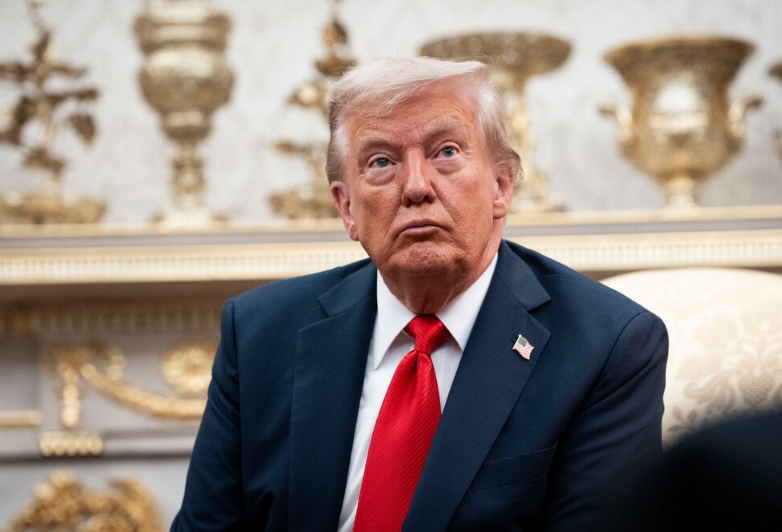
Recently, US President Trump announced the dismissal of Federal Reserve Governor Lisa Cook, citing "mortgage fraud." This move not only put Cook personally at the center of a storm but also put the Fed's independence under scrutiny, sparking a fierce debate over the boundaries of presidential power, the direction of monetary policy, and the stability of financial markets.
Trump accused Cook of fraud by claiming two properties as "primary residences" when applying for mortgages in 2021 to obtain more favorable loan terms. However, Cook responded that the relevant actions occurred before she joined the Fed and emphasized that she "would not resign due to bullying." Legally, under the Federal Reserve Act, a president must have "good cause" to fire a Fed governor, such as dereliction of duty or serious misconduct. Legal experts point out that unless Cook's actions can be proven to have directly affected her ability to perform her duties or constitute a criminal offense, Trump's dismissal order may lack legal basis. The Supreme Court has previously ruled that the president cannot arbitrarily fire Federal Reserve officials over policy differences, and this incident may trigger renewed judicial review and escalate into a protracted legal battle.
Trump's attack on Cook is not an isolated incident. His ally, Bill Pulte, head of the Federal Housing Finance Agency, led the charges, and the Department of Justice quickly intervened, forming a "political witch hunt." The central target is the Federal Reserve's independence. Trump, dissatisfied with the Fed's failure to cooperate with interest rate cuts to stimulate the economy, has repeatedly criticized Chairman Powell for being "slow to act." He is attempting to reshape policy direction by purging the Board of Governors and installing his cronies. Cook, the first African-American woman to serve on the Board of Governors, has become a focal point for the attacks, having opposed hasty rate cuts and criticized Trump's trade policies. If Trump successfully replaces Cook, he would control a majority of seats on the Federal Reserve Board, potentially pushing for aggressive rate cuts and exacerbating inflation risks and market volatility.
Since its founding, the Federal Reserve's independence has been considered the cornerstone of sound monetary policy. The Federal Reserve Act of 1935 explicitly protects Board members from political interference. However, Trump's actions challenge this tradition. If the court upholds the dismissal, it would establish a precedent allowing the president to dismiss Federal Reserve officials for personal historical conduct, weakening the central bank's ability to resist executive intervention. Historical cases show that presidential intervention in the Federal Reserve is often accompanied by economic turmoil: Nixon's pressure led to soaring inflation, and Volcker's efforts to combat inflation, while resisting Reagan's pressure, ultimately stabilized the economy. If independence is compromised, markets may question the impartiality of the Fed's decisions, triggering capital outflows and asset price fluctuations.
The conflict between Trump and the Fed has already caused market volatility. Investors worry that if the legal battle continues, Fed policymaking will be paralyzed; if frequent turnover of Board members due to political pressure occurs, the consistency of monetary policy will be undermined. Internationally, the credibility of the US dollar and the stability of the global financial system are also under test. Analysts warn that a weakening of the Fed's independence could become a more serious systemic risk than short-term interest rate fluctuations.
Trump's decision to fire Cook is essentially a showdown of the century between executive power and central bank independence. Regardless of the legal outcome, it has exposed the deepening institutional cracks under the polarization of American politics. Whether the Fed can uphold its promise of "being independent of political influence" not only affects the fate of the US economy but also affects global confidence in the dollar system. This turmoil serves as a warning: if the cornerstones of monetary policy are eroded, the future of any economy will be shrouded in immense uncertainty.

Due to the continuous decrease in rainfall and the rapid drop in groundwater levels, several large sinkholes have successively appeared in several agricultural areas in central Turkey in recent years, causing great concern among local farmers and environmental experts.
Due to the continuous decrease in rainfall and the rapid dr…
The Prime Minister's Office of Israel said Hamas attacked I…
Fourteen countries including the United Kingdom, France and…
The US Department of Justice said on Wednesday (December 24…
The Japanese government has submitted a draft, planning to …
On December 25th local time, NVIDIA announced a technology …